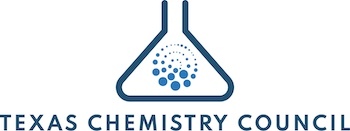Complete Story
06/02/2025
Logan’s Legal & Regulatory Corner
We have crossed over the first 100 days of the new EPA administration. The key themes so far have been committing agency resources to its core missions and reevaluating the priorities from the last administration. EPA Administrator Zeldin announced early on the “Powering the Great American Comeback Initiative,” which included five key pillars that will guide the agency:
- Clean Air, Land, and Water for Every American
- Restore American Energy Dominance
- Permitting Reform, Cooperative Federalism, and Cross-Agency Partnerships
- Make the U.S. the AI Capital of the World
- Protecting and Bringing Back American Auto Jobs
As part of this initiative, EPA identified 31 prior agency actions for initial reconsideration, including:
- Multiple National Emission Standards for Hazardous Air Pollutants (NESHAP) applicable to the manufacturing sector - for example the HON or MON rules
- Risk Management Program Rule under the Clean Air Act
- National Ambient Air Quality Standards for Particulate Matter
- The 2009 Greenhouse Gas Endangerment Finding and associated regulations
- “Waters of the United States” Rule
From a regulatory perspective, Administrator Zeldin explained “any business that wants to invest in American should be able to do so without having to face years-long, uncertain, and costly permitting processes.” This is a great time for industry to engage with EPA to provide insight on regulatory improvements that can provide certainty in permitting based on sound scientific evidence. Through the first 100 days, Administrator Zeldin believes EPA’s actions demonstrate that both environmental stewardship and economic development can be achieved as complementary goals.
One priority that remains the same for EPA is the commitment to researching and regulating PFAS. The prior administration launched its PFAS Strategic Roadmap in 2021, which resulted in several proposed and final rules focused on PFAS under most federal environmental statutes. Last week, Administrator Zeldin announced major EPA actions regarding PFAS described to build partnerships, strengthen science, enhance communication, and combat contamination. Specifically, EPA will initially focus on:
- Designating an agency lead for PFAS;
- Implement a PFAS testing strategy under the Toxic Substances Control Act (TSCA) § 4 to seek information concerning hazard characteristics and exposure pathways;
- Update the PFAS Destruction and Disposal Guidance annually instead of every three years;
- Develop effluent limitations guidelines (EGL) for PFAS manufacturers, and consider other EGLs as necessary;
- Address compliance challenges for public water systems related to the Safe Drinking Water Act maximum concentration limits finalized last year;
- Continue to add PFAS to the Toxic Release Inventory;
- Establish a clear liability framework where polluters pay and protects passive receivers; and
- Work with states to assess risks from PFAS contamination and develop assessment tools.
From a legal perspective, several lawsuits challenging final EPA rules that were published last year have been placed on hold. EPA requested courts across the country pause litigation to provide the new administration time to review these existing rules and evaluate the agency’s legal strategies. This includes key challenges to EPA’s PFAS drinking water standards, the HON rule, various TSCA risk management rules, and designating PFOA and PFOS as hazardous substances. For a more detailed review of these cases, please review the upcoming TCC Legal & Regulatory Review.
TCC expects these cases to either begin moving again soon after the extended delay or for the EPA to try and seek rules be remanded to the agency for reconsideration. TCC will continue to monitor these legal actions and provide updates.
Focusing on Texas, the TCEQ has released its draft rule package for the Section 185 fee program associated with Texas’s Severe classification for the 2008 8-hour ozone NAAQS. TCC and other trades submitted informal comments to the agency encouraging TCEQ to include certain flexibilities in the draft rule package as supported by the Clean Air Act. After a preliminary review of the draft rules, TCEQ included these flexibilities based on TCC’s informal comments. TCEQ will host a public meeting on June 12 prior to the formal comment period ending on June 18. TCC will continue to engage TCEQ on this issue and anticipates submitting formal comments supporting adoption of the flexibilities in the Section 185 fee program.

